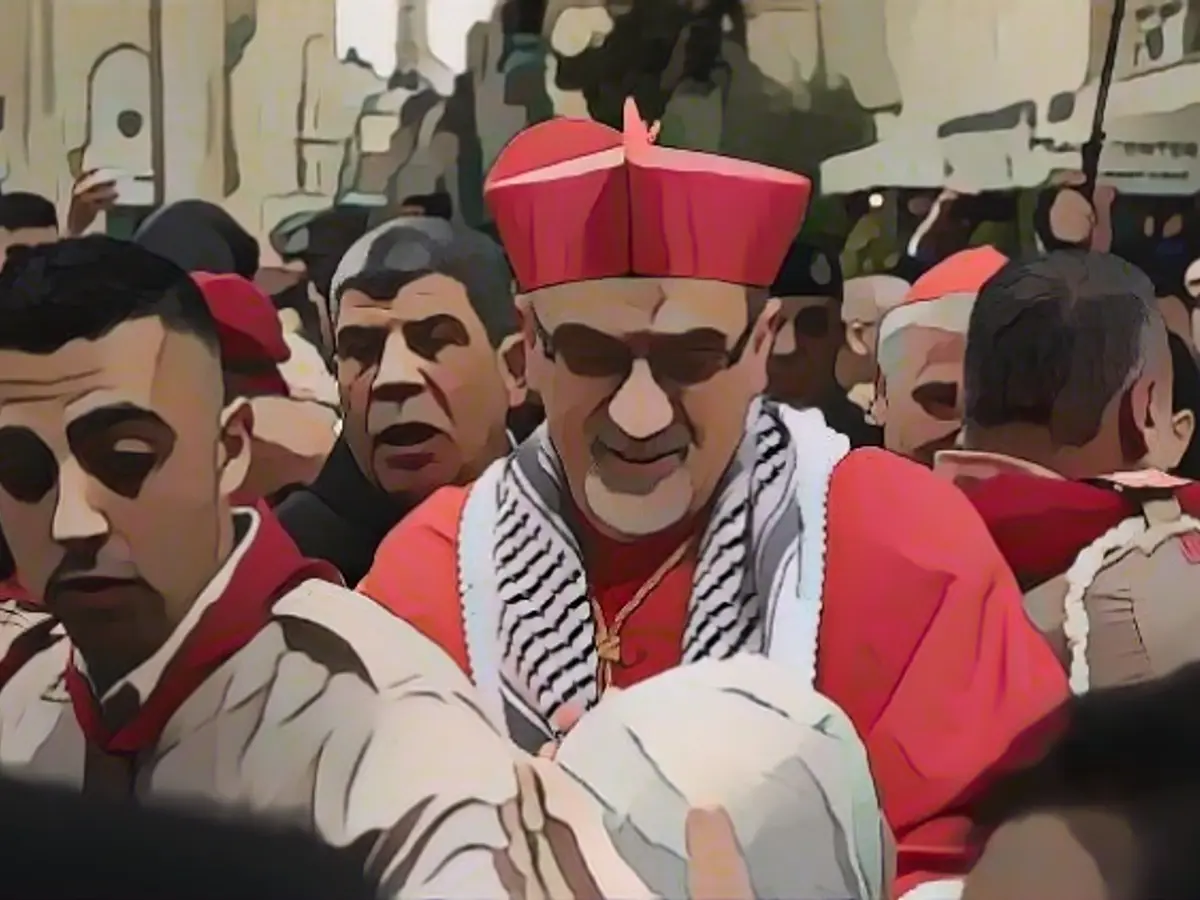Christians in the Middle East do not feel like celebrating
Back in November, representatives of the Christian churches agreed to celebrate Christmas in the Middle East in a subdued manner this year. In view of the war in the Gaza Strip, there is little joy. Tourists are also staying away - with economic consequences.
"Behold, I bring you good tidings of great joy, which shall be to all people: for unto you is born this day a Savior." These words from the Christmas story in the Gospel of Luke are likely to be difficult for many Christians in the Middle East and beyond to say in view of the horrific images of the attack on Israel by the Islamist Hamas and the Israeli military offensive in the Gaza Strip.
For some, Christmas this year is more of a duty than a celebration. "The atmosphere is very sad. No one feels like celebrating in view of the Gaza war," said Anton Siniora, a Christian from Jerusalem. "We didn't even put up a Christmas tree this year. Only a few families have done so, at least to bring a little joy to their children," he added.
Bethlehem, with its world-famous Church of the Nativity south of Jerusalem, is also a sad, deserted place this Christmas. However, midnight mass will also be said this Christmas in the church, under whose altar is the grotto where, according to tradition, Jesus Christ was born more than 2,000 years ago.
"Also an economic disaster"
The city, which is usually packed with tens of thousands of pilgrims from all over the world at Christmas, is virtually deserted due to the war and the Israeli lockdown. The large Christmas tree that usually stands in front of the Church of the Nativity during Advent is missing. The heads of the churches in Jerusalem had already decided in November that there would be no Christmas decorations in the Holy Land because of the war.
"It's not just a sad Christmas, it's also an economic disaster," said George Rishmawi, a resident of Bethlehem. "The Israeli occupation has stifled the economy. Because of the closure of the city, no one can get in or out without a pass," he said. Bethlehem is under siege. In addition, public employees no longer receive salaries because the Palestinian Authority, which administers parts of the West Bank, no longer has any money.
No one can go to work in Israel anymore, there are no tourists and sales of the famous olive wood Christmas souvenirs are close to zero. "It's sad, and instead of going to Manger Square in front of the Church of the Nativity like I do every Christmas, I'm going to stay at home," said Rishmawi. "Everyone here feels that way in view of the killing in the Gaza Strip," he added. Not even during the coronavirus pandemic had he seen Bethlehem this bleak. And no one wants to meet the Latin Patriarch of Jerusalem, Cardinal Pierbatista Pizzaballa, because everyone is annoyed that he met with Israeli President Izchak Herzog.
Procession with few visitors
As the highest representative of the Catholic Church in the Holy Land, Pizzaballa took part in the traditional Christmas procession from Jerusalem to Bethlehem on Sunday morning. However, he was only accompanied by a few faithful and a few Franciscans on the car journey. As every year, the procession began at the Jaffa Gate in the historic Old City of Jerusalem and ended at the Church of the Nativity.
In the Holy Land, Christians form only a very small minority: around 1,000 Christians live in the Gaza Strip, out of a total population of around 2.2 million. In Israel, Christians make up just under two percent of the approximately 10 million citizens. In the West Bank, they make up around 1.5 percent of the approximately 3.2 million Palestinians.
French President Emmanuel Macron spoke to Pizzaballa on the phone and assured him of France's continued solidarity. Macron expressed his great concern about the dramatic situation of the Latin Church in Gaza, where hundreds of civilians of all denominations have been seeking refuge and living under fire for months. Despite the generally subdued mood, Palestinian President Mahmoud Abbas expressed the hope in a Christmas message that the Christian festival would bring an end to the dying in the Gaza Strip. However, there were no signs of this. Abbas emphasized that the Palestinians were continuing to fight for their right to a separate and sovereign state.
The war was triggered by the worst massacre in Israel's history, carried out by terrorists from the Islamist Hamas and other groups on October 7 in Israel near the border with the Gaza Strip. More than 1200 people were killed. Israel responded with massive air strikes and, since the end of October, a ground offensive in the area. According to the health authority controlled by the Islamist Hamas, more than 20,400 people have now been killed.
Read also:
- Year of climate records: extreme is the new normal
- Precautionary arrests show Islamist terror threat
- UN vote urges Israel to ceasefire
- SPD rules out budget resolution before the end of the year
Despite the United Nations urging Israel to ceasefire, the conflict between Israel and the Gaza Strip continues, making it challenging for Christians in the West Bank and Jerusalem to celebrate Christmas with joy. The war in the Gaza Strip, initiated by the Islamist Hamas, has left many civilians dead and caused economic hardships, including the closure of Bethlehem and the absence of tourists. As a result, Christians like Anton Siniora in Jerusalem have opted to keep their Christmas celebrations minimal, opting for a tree only for their children's sake.
Source: www.ntv.de








